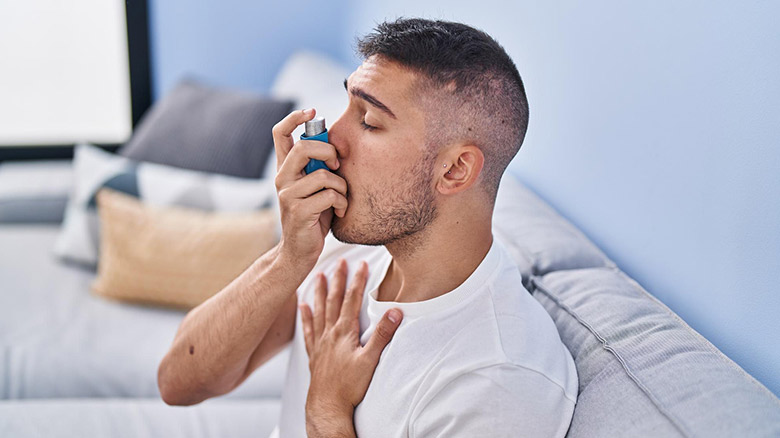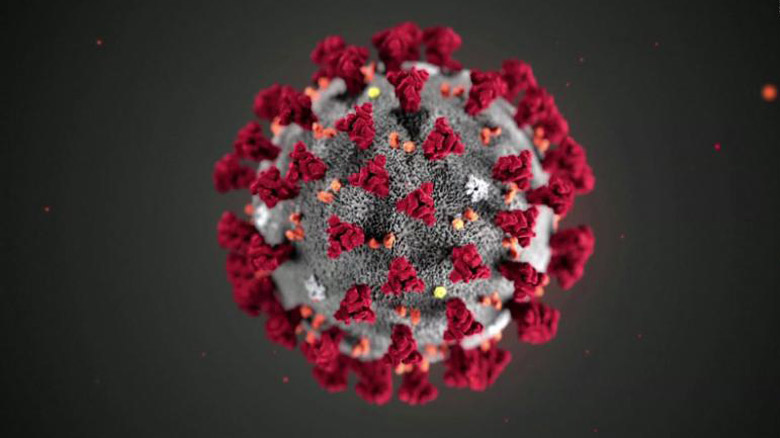
Asthma is a long-lasting respiratory / lung disorder that causes inflammation and narrowing of the air passages. Resulting to symptoms like wheezing, coughing, a feeling of tightness in the chest, and difficulty with breath comfortably. Asthma occurrences can vary from person to person from mild to severe attacks.
In Ayurveda, bronchial asthma is known as Tamaka Swasa and it distinguishes as a disruption in the balance of the three Doshas: Vata, Pitta, and Kapha. These Doshas inequality causes burning and narrowing of the air passages, leading to breathing difficulties.
The Common Causes of Asthma:
Though the exact cause of Asthma is not known, but it often involves a combination of genetic and environmental factors.
Asthma in Winter, a challenging health concern:
Winter season can be described as a tough time for people with asthma and its symptoms. The cold, and dry air, along with increased exposure to indoor dust, allergens and pollutants, can trigger asthma symptoms and worsen the existing health conditions.
Why Winter is a Challenge for Asthma patients:
- Cold air can irritate the nasal airways, causing them to tighten, making it difficult to breath. Dry air further worsens this issue by drying out the airways and making them more susceptible to irritation.
- As we spend more time indoors during winter season, we are exposed to indoor allergens like dust mites, pet hair and molds.
- Respiratory Infections like Colds, flu, and other respiratory infections are more common during winter. These infections can worsen asthma symptoms and lead to more severe attacks.
- Exposure to Indoor Air Pollutants, heating systems, fireplaces, and cooking can release pollutants like dust, smoke, and fumes into the air, further irritating the airways.
Common Asthma Symptoms:
- Wheezing, a whistling sound when you breathe out
- Coughing
- Shortness of breath
- Chest tightness
- Difficulty in sleeping
Ayurvedic Perspective on Asthma:
In Ayurveda Asthma is distinguish in three types:
- Vata Asthma is characterized as dry cough with wheezing sound and gets aggravation in cold and dry winter weather.
- Pitta Asthma is associated with burning sensation in chest with inflammation and is often triggered by infections, allergens, and pollution.
- Kapha Asthma is demonstrated as congestion, heavy mucus production in chest and is triggered by allergens, certain foods, and damp environments.
Ancient Ayurveda for Asthma treatment with A Holistic Approach:
Ayurvedic treatment for Asthma, focuses on balancing the Doshas: Vata, Pitta, and Kapha and addressing the root cause of these imbalances. Ayurveda offers a holistic approach in managing asthma by focusing on balancing the Doshas and addressing the root cause of the imbalances.
Here are some common Ayurvedic treatments for Asthma:
A. Herbal Remedies:
- Shwasahara Churna: A Ayurvedic herbal powder which helps to relieve respiratory symptoms.
- Kantakari: A herb known help clear mucus (phlegm) from your airway with anti-inflammatory properties.
- Tulsi: Holy basil leaf that has anti-inflammatory and antioxidant properties.
- Ashwagandha: Herb that helps manage stress and inflammation.
B. Panchakarma Therapies:
- Using Panchakarma Ayurvedic detoxification therapies like Vamana (therapeutic vomiting) and Virechana (therapeutic purgation) can help cleanse the body and reduce inflammation.
- In Vamana therapeutic using vomiting to cleanse the respiratory tract.
- Virechana therapeutic used for removing by cleansing; clearing of sediment or other undesired elements to eliminate toxins from body.
C. Diet and Lifestyle:
- A light rich of fiber, easily digestible diet is recommended. Avoid heavy, oily, salty and cold foods.
- Regular physical exercise, yoga and meditation can help manage stress and improve lung function.
- Early morning breathing exercises like Pranayama can help regulate breathing and reduce anxiety.
Remember to:
- Consult a well learned Ayurvedic Consultant as it’s essential to determine the best course of treatment for your specific Asthmatic condition.
- Specific individualized treatment plan will vary depending on the individual’s Dosha’s imbalances and the severity of their asthma conditions.
- Continue with Conventional Treatment as Ayurveda should be used as a complementary approach to conventional medicine, not as a complete replacement.
- While ancient Ayurveda offers long-term treatments for asthma. Conventional medicine to Asthma can also be used as a complementary approach to Ayurveda holistic treatment.
Conventional Tips for Managing Asthma During Winter:
- Use warm cloths and dress in cloth layers to stay warm and avoid sudden temperature changes.
- Use Humidifier as it can help to add additional moisture in the air while reducing dryness and irritation.
- Identify and avoid triggers point area or events like smoke, dust, pet dander and strong odors.
- Take your prescribed medications regularly even if you feel well.
- Get yourself a Flu Shot as it can help prevent respiratory infections that can worsen asthma.
- Use good quality air purifiers with HEPA filters to monitor indoor air quality as it also removes allergens and pollutants from the air.
- Exercise Indoors if outdoor exercise is difficult, find indoor activities like swimming, Pranayama or yoga.
- Regularly consult your doctor to monitor your Asthmatic conditions and adjust your treatment plan accordingly.
- If your asthma symptoms worsen during winter, don’t hesitate to seek medical treatment as early treatment can help prevent severe asthma attacks.



